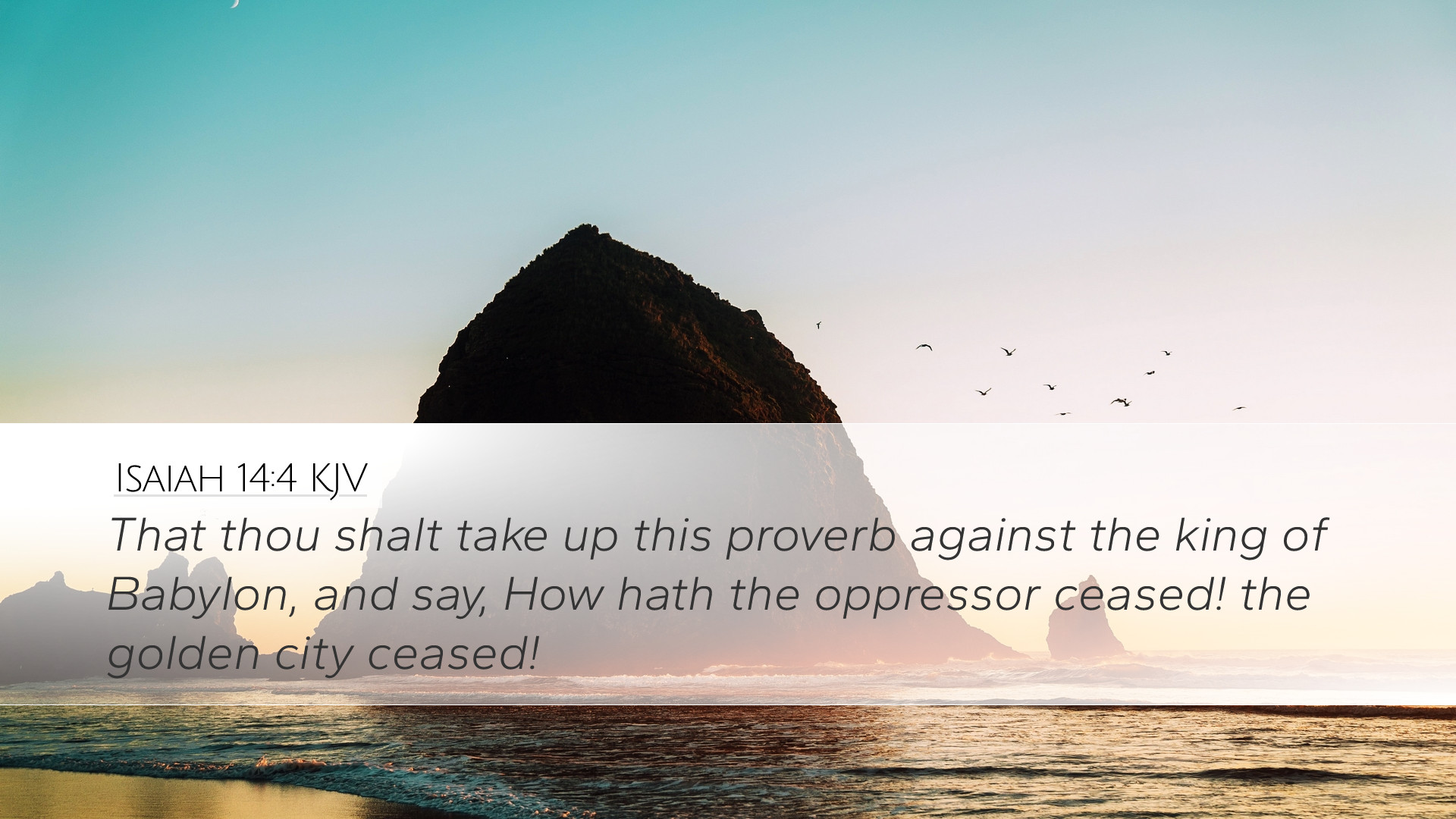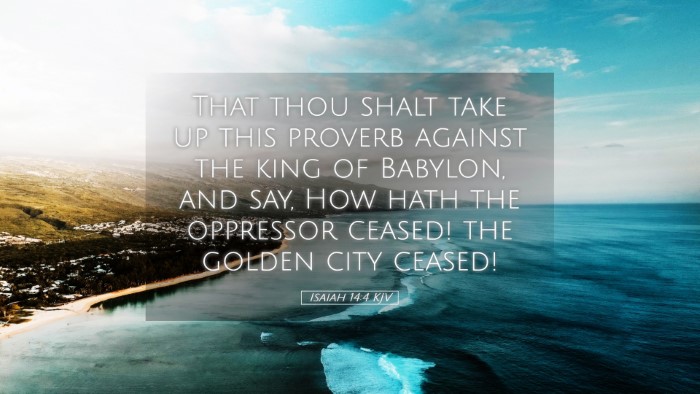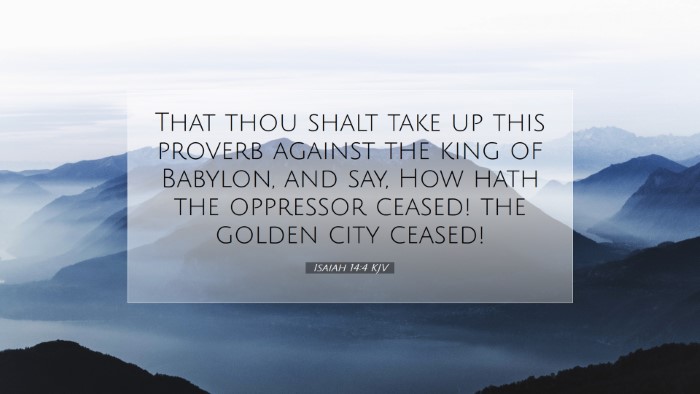Commentary on Isaiah 14:4
Isaiah 14:4 states: "That thou shalt take up this proverb against the king of Babylon, and say, How hath the oppressor ceased! the golden city ceased!"
Context of Isaiah 14
This verse is part of a passage that foretells the downfall of Babylon, a symbol of oppression and tyranny. The entire chapter provides insights into the fate of Babylon and is widely interpreted as a proclamation of hope for the oppressed Israelites.
Historical Background
Historically, Babylon was a formidable kingdom, known for its wealth, power, and grandeur. The prophecy signifies God's intention to overturn this power and liberate His people from their captors' oppression.
Thematic Analysis
- Oppression and Liberation: The verse highlights the transformation from oppression to liberation, a recurring theme in biblical prophecy.
- Proverbial Declaration: The use of the term "proverb" suggests a wise saying that encapsulates the new reality the Israelites will experience.
- Contrast of Fortune: The "golden city" represents Babylon's erstwhile glory, now reduced to desolation.
Insights from Matthew Henry
Matthew Henry emphasizes the fall of Babylon as a manifestation of God's justice. He points out that the Israelites, once oppressed, will use this proverb to celebrate the cessation of their oppressor's reign. Henry notes that this verse serves to illustrate God's sovereignty over nations and His ability to turn the fortunes of the proud upside down.
Insights from Albert Barnes
Albert Barnes interprets this verse as a dirge for Babylon, reflecting the abrupt reversal of its fortunes. He comments on the phrase "the oppressor ceased," suggesting that the once-mighty king will be mourned by no one, and the former glory of Babylon will be nothing but a distant memory. Barnes highlights the broader implications for any nation that oppresses God's people, asserting that divine justice will prevail.
Insights from Adam Clarke
Adam Clarke provides a detailed examination of the language and cultural context of this verse. He explains that the "golden city" refers to the luxurious and opulent life that Babylon represented. Clarke notes that this lamentation emphasizes the stark contrast between the former glory of Babylon and its impending downfall. He encourages readers to reflect on the transient nature of earthly power and wealth.
Theological Implications
This verse carries significant theological implications regarding the nature of God and His relationship with human kingdoms. The following points summarize these implications:
- Divine Sovereignty: God holds authority over civilizations and can dismantle even the mightiest of rulers.
- Moral Order: The downfall of Babylon illustrates the moral order that undergirds God's judgments. The oppressed will receive justice.
- Hope for the Oppressed: This prophecy serves as a beacon of hope for those under oppression, reminding them that their suffering is seen and will be addressed by God.
Application for Today's Believers
For contemporary pastors, students, and theologians, the message of Isaiah 14:4 remains profoundly relevant. It encourages believers to trust in God's ultimate justice and serves as a reminder that no power can withstand His authority. This verse can inspire sermons and teachings focused on patient endurance amid suffering, as well as the assurance of God’s deliverance from trials.
Conclusion
Isaiah 14:4 is a powerful reminder of God’s unyielding sovereignty over human affairs. The insights drawn from renowned commentaries deepen our understanding of the text and its implications for faith and practice. Ultimately, it encourages an expectation of divine justice, uplifting the spirits of believers who may find themselves in oppressive circumstances, assuring them that God will indeed bring about a cessation of their struggles.


